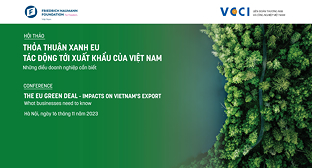Challenge the Non-market economy methodology taken by EU and U.S. against China in WTO anti-dumping area
31/12/2013 12:00
Ji Ma
Abstract
The World Trade Organization (WTO) is a common institutional framework for worldwide trade in goods and services. In anti-dumping area the U.S. and the European Union (EU) always consider China as non-market economy (NME), which results China suffering a greater loss compared with treating China as market economy. This paper explains that the non-market economy methodology taken by EU and U.S. in WTO Anti-dumping cases against China violates the principle of the most-favoured-nation (MFN) as the golden principle in WTO. The non-market economy issue reappeared recently in WTO anti-dumping cases, which is important for China, EU, U.S., even the world. Through literature review and relevant cases analysis, the author discovers that the non-market economy problem hasn’t really solved by the WTO authority. Through there are several differences between the methodologies taken by EU and U.S., the general conception of the non-market economy between EU and US is similar to a great extent. Three elements must be established to demonstrate violation of the MFN, which are “advantage,” “likeness” and “unconditionally and immediately.” Regarding China as non-market economy status in WTO anti-dumping satisfies each of three elements above, and thus violates the MFN principle. Therefore, the EU and U.S. may rethink and modify existing discriminatory legal provisions and specific methods in its trade remedy investigations.
Download the paper here:
Các tin khác
- The Dispute Settlement Crisis in the World Trade Organization: Causes and Cures (16/03/2018)
- Modification of trade defence rules regarding non-market economy costs and prices (23/02/2018)
- Research Paper: Options for Disciplining the Use of Trade Remedies in Clean Energy Technologies (03/08/2017)
- Addressing the rise of Trade Remedies against Environmental Goods (03/08/2017)
- Anti-dumping Retaliation - —A Common Threat to International Trade (15/11/2016)
 Home
Home
 About Us
About Us




















